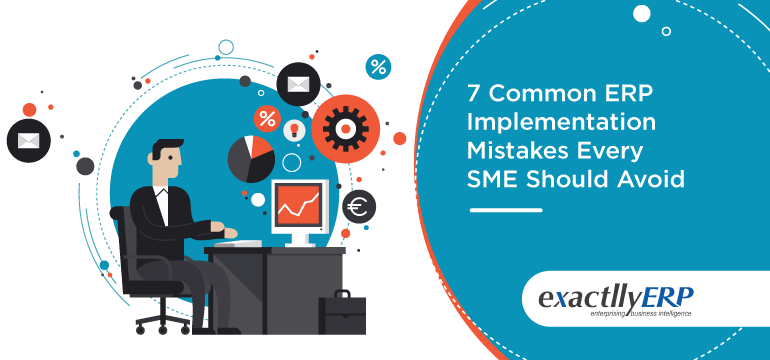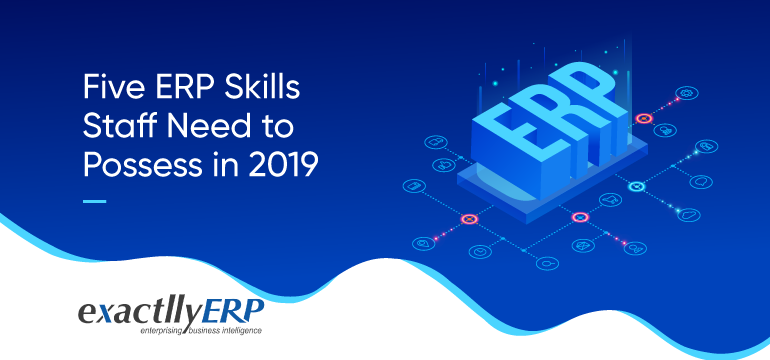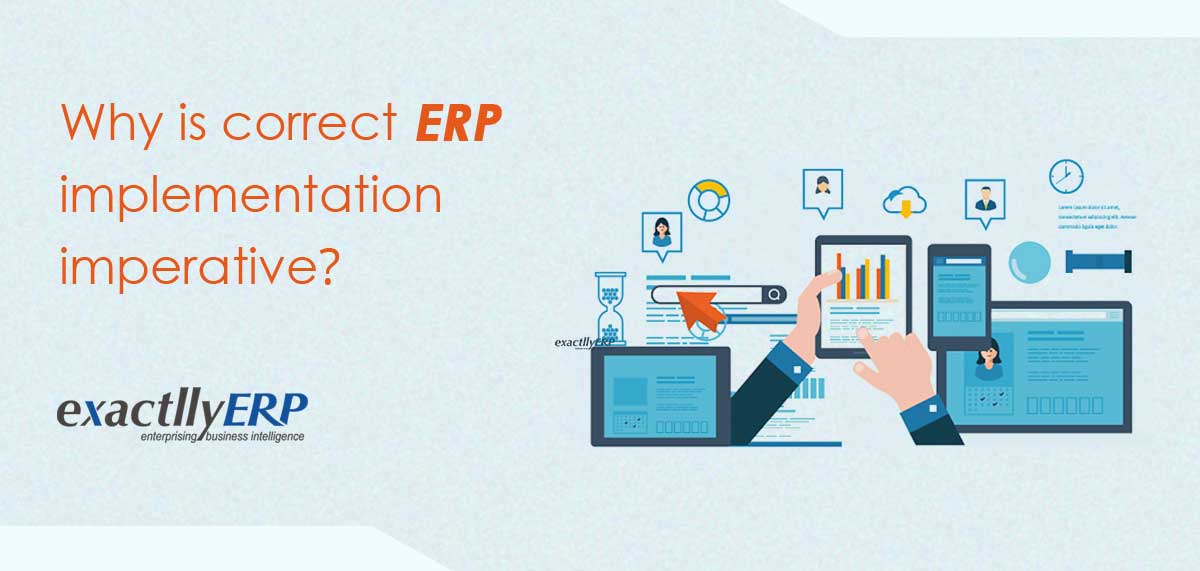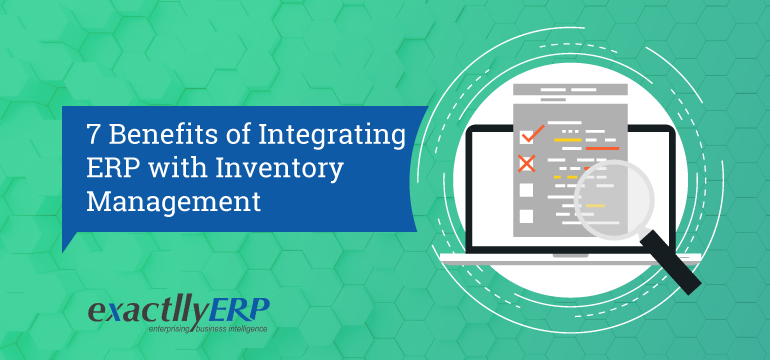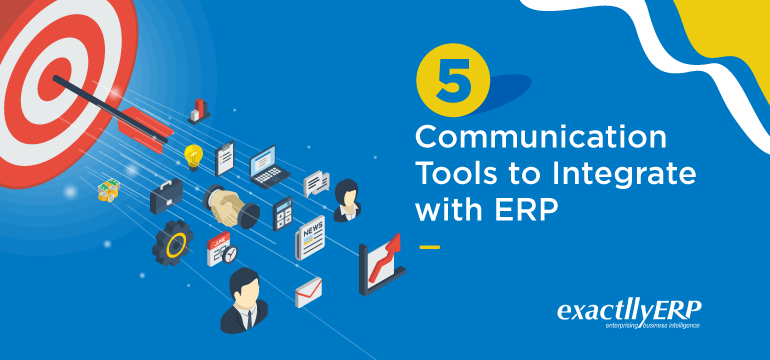Top 5 Mistakes to Avoid while Investing in an ERP Software
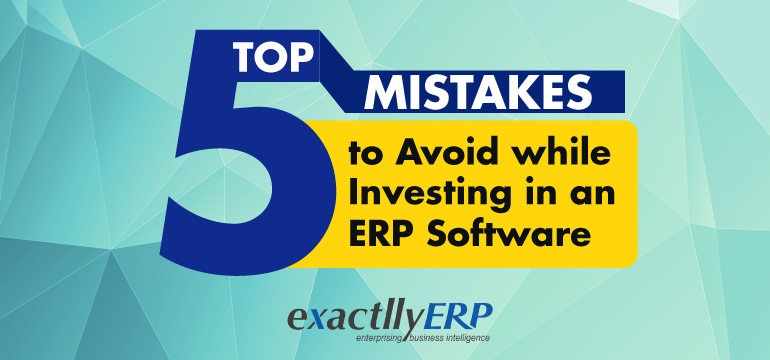
As businesses are expanding, the processes they undertake are becoming increasingly more complex. There are so many operations executing simultaneously, that keeping track of them becomes a mess. Thankfully, ERP software has emerged as a saviour.
ERP (Enterprise Resource Planning) refers to a process management software that allows you to handle resources, streamline workflow and automate a lot of processes. However, the implementation of ERP is where the actual problem lies. There are certain mistakes you are bound to make if you are new to the software. But, as they say, “prevention is better than cure”, so let’s take a look at some of the common mistake people making while implementing ERP:
1. Choosing Bad Vendors:
If you want to try a new dish, know the chef first. Most of us only look at the features and price while choosing a product, but it is the vendor who matters a lot too. Most often than not, a new vendor will try to hide the shortcomings of his product while glossing over the features, thus keeping you in the blinds. Such scams will not be caught till the ERP software is fully functional for your organization; and then, it would be too costly to make any amends. For this, you must choose vendors like Exactlly, who are quite reputed in the industry.
Another mistake made while choosing vendors is selecting vendors who know nothing about your business. This mistake could be done while dealing with both small and big brands.
ERP software is not like your usual software like Office or Photoshop. It needs to be implemented to the core of your business, which is why the vendor must know the intricacies of it.
In the absence of such a vendor, you will have to be an expert in your niche, which would ultimately cost you more money. The more prudent solution would be to go with vendors who are in sync with your industry and its requirements.
Furthermore, choose vendors who are ready to (and look trustworthy enough) make long-time commitments with your company. ERP is a long-term project, and it requires periodic growth and revisions. Selecting a vendor who is only interested in installing the software will cost you a lot of money later on.
2. Choosing the Wrong Team:
ERP implementation is one of the most critical projects you could undertake for your organization. As such, it is a job for the pros. Selecting a team that is not up to the mark will only delay and negatively affect the implementation. The team should include everyone, right from the stakeholders to the project managers.
One key cause is the lack of attention. If the team members don’t give the required attention, the chances are high that the implementation would be severely affected.
The higher up the person is in the hierarchy, the more chances he or she has of hampering or smoothening the implementation process, depending on their interest and drive. There has to be a constant flow of attention and efforts throughout the chain, in order to ensure that ERP is done right.
Another issue that people ignore while selecting the team is the long-term implications. Individuals who have worked on its implementation will likely have more expertise and proficiency in using it.
This is both prudent as well as cost-effective, as it eliminates the future needs of training the employees specifically for using the software.
A certain number of business practices must be kept in mind by the team while implementing ERP. To begin with, there has to be a constant sense of commitment from all team members. A person, who is not reliable, must not be selected, no matter how talented he/she is.
The team must have a habit of regularly documenting everything of need, which could be later used for quick references.
3. Improper Planning:
ERP software is perhaps the biggest thing your IT department could face, with respect to the time, money and efforts involved. As such, it is quite obvious that you would be serious about it, right? This is where most people err.
The notion of “going with the flow” is quite popular in every aspect of life, business included. It does not work, at all.
If you talk about ERP, most organizations start implementing ERP when they feel there is a need for it, without doing adequate risk-reward analysis or creating deadlines. As such, most of the times such implementations are either severely-delayed and cost much more money than what was expected.
A part of the reason is that many people are not aware of whether or not they require ERP software. It is one of those “well, everyone is getting it, so we should too” things. There must be proper audits periodically along with evaluations, to judge whether your company needs ERP software.
Another glitch that businesses face in their palming is not being able to anticipate the money and resources that would be required correctly. Sure, it would be a first time for them, but that does not make the mistakes okay. Any small delay or error could cost you thousands of dollars; trying to make modifications in between (or later) could cost you much more than that.
To be safer, it is always better to hire an expert and map out a correct estimate of the resources, time and manpower that will be required.
4. Ignoring Critical Steps:
ERP implementation is a vast and multi-faceted process, and therefore, it requires quite a lot of focus to succeed. Unfortunately, many companies ignore some crucial steps, which proves to be their undoing.
One of them is the importance of accurate data. Since the entire ERP software is data-driven, it is of paramount importance to have correct data. Of course, there is always a margin of error allowed, but most people take that margin to be pretty generous. Proper programming parameters need to exist in order to expect correct results.
Another step you might ignore is testing. Once the ERP software is installed successfully, there are two ways to check it: either create test cases for it or test it directly in the real world.
The first way is largely ineffective, while the second could cost you a lot of money if gone wrong.
Fortunately, there is a third way: simulating the real environment solely for testing purposes. This would ensure that your software is thoroughly tested, without risking any actual projects.
5. Ignoring System-Level Factors:
When we say “system-level factors”, we are referring to the factors that go beyond the scope of ERP implementation, yet could affect it adversely.
One of them is legacy applications. These refer to applications that are now obsolete but are not replaced due to the sheer resources that would be required for the task. However, when you are implementing ERP in your business, it is important that you decommission legacy applications in order to avoid future complications.
Another mistake people make is ignoring the maintenance part once the ERP software is implemented. Every software requires maintenance, but ERP requires it more than others.
Since this particular software is based on “growth”, or rather, “replacement”, you can be assured that once installed, ERP is not going to be removed for a long, long time. Therefore, it is important that you have an effective maintenance strategy for the software, so that it continues to perform optimally. Wants to know more about exactllyERP? Contact Us and get a Free Demo.



